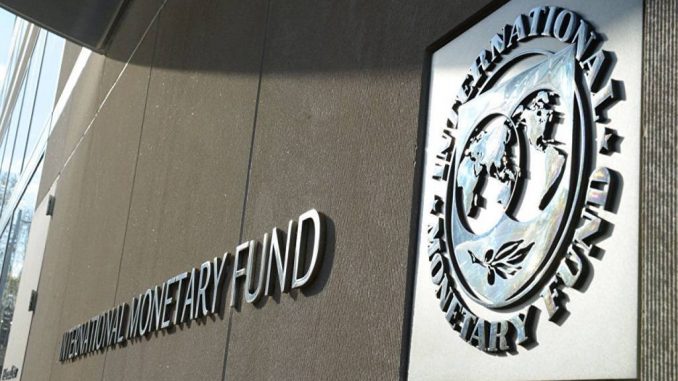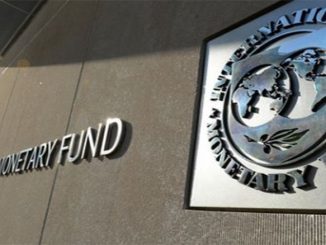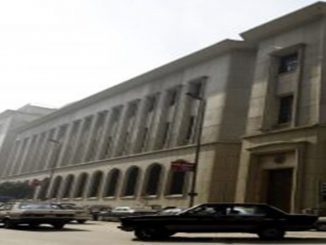
The International Monetary Fund early Saturday approved a $3 billion loan for Egypt under a 46-month program.
In a statement, the IMF said the arrangement under the Extended Fund Facility (EFF) includes the immediate disbursement of $347 million.
“The package includes a durable shift to a flexible exchange rate regime, monetary policy aimed at gradually reducing inflation, fiscal consolidation to ensure downward public debt trajectory while enhancing social safety nets to protect the vulnerable,” it said.
The arrangement is expected to “catalyse a large multi-year financing package,” including about $5 billion in the financial year-ending in June 2023, reflecting broad international and regional support for Egypt, the IMF said in a statement. It also said there were discussions for an additional $1 billion from the fund’s Resiliance and Sustainability Facility.
According to the statement, the loan program would also allow further financing of about $14 billion from Egypt’s international and regional partners, including from Gulf countries.
The Egyptian government’s fiscal policy under the EFF would be anchored to the reduction of general government debt and gross financing needs, the statement said.
“The commitment to durable exchange rate flexibility going forward will be a cornerstone policy for rebuilding and safeguarding Egypt’s external resilience over the long term,” the IMF said.
It welcomed recent actions by Egypt to expand targeted social protection and phase out the mandatory use of letters of credit for imports.
Egypt’s currency fell by about 13.5% to a record low against the dollar on Thursday, Refinitiv data showed, after the central bank said it had moved to the new regime in advance of the deal’s announcement and raised interest rates by 200 basis points.
Egypt began seeking a new IMF loan after Russia’s war in Ukraine pushed up its bills for wheat and oil while dealing a blow to tourism from two of its largest markets, Ukraine and Russia, a key source of hard currency.
On Wednesday, the government extended the disbursement of a 100-300 Egyptian pounds ($4.42-13.25) bonus to the food subsidy cards used by about 10.5 million families for six more months to allow beneficiaries to cope with rising food prices, officials said.
“The program will include policies to unleash private sector growth including by reducing the state footprint, adopting a more robust competition framework, enhancing transparency, and ensuring improved trade facilitation,” the IMF said.
On October 27, after months of negotiations, Egypt reached a new agreement with the International Monetary Fund (IMF) to borrow $3 billion over a 46-month period. The Egyptian economy has been struggling over the past couple of years due to the ramifications of the COVID-19 pandemic and fallout from Russia’s war on Ukraine.
This new agreement that has been approved aims to help the Egyptian government to stabilize its economy and strengthen its social safety net, and demands that Egypt implement several economic reforms, including adopting a flexible exchange rate, decreasing public spending, and encouraging growth in the private sector. However, it is doubtful that the new agreement will be able to magically save Egypt’s economy and to solve its chronic problems.
Egypt’s economic problems are nothing new. They are both deeply rooted and multifaceted, and can be traced back to the economic and development policies and programs adopted by various Egyptian governments over the past seven decades. But the country’s crises were made especially worse under the regimes of former President Hosni Mubarak and current President Abdel Fattah el-Sisi.
In the 1950s and 60s, Egypt under former President Gamal Abdel Nasser adopted a state-directed economic policy wherein the state controlled the entire economy through a centralized strategy across the industrial, agricultural, services, and commercial sectors, with extremely limited room for the private sector. In order to enhance his public image, Abdel Nasser introduced free education and healthcare to Egypt’s middle and lower classes and subsidized several goods and commodities such as bread, gas, electricity, and cooking oil. However, his successor, Anwar al-Sadat, drastically liberalized the economy, dubbing his program one of infitah, or “open door” policy, which aimed to encourage the growth of the private sector and to increase foreign investment in Egypt.
Committing to the infitah meant applying austerity measures and decreasing public spending. However, this policy backfired after Sadat’s government increased the price of government-subsidized bread in January 1977, which lead to popular riots and protests often referred to as the Bread Uprising. The government immediately backtracked and suspended the cuts in bread subsidies. When Sadat’s successor Hosni Mubarak came to power in 1981, he was therefore careful not to repeat Sadat’s mistake, and so adopted a mixed economic policy that combined limited economic liberalization with an increasing role for the state in financing development projects and subsidizing basic goods and public services.
However, facing an oil crisis in the 1980s and a shortage of state funds, Mubarak resorted to agreements with the IMF and other international lenders in order to bail out his economic plans. In return for the loans, Mubarak’s government was forced to implement an IMF-sponsored Structural Adjustment Program, a largely neoliberal program that had a significantly negative impact on Egypt’s middle and lower classes during the 1990s. And in the decade leading up to the 2011 Egyptian uprising, the pace of privatization intensified, further alienating millions of Egyptians and severely impacting their livelihoods, thereby paving the way to Mubarak’s removal from power in February 2011.
These volatile and uneven economic policies have resulted in a distorted version of development in a country already suffering from limited resources and a rapidly growing population, and have created several problems that will have a lasting impact, including poverty, corruption, social and economic inequality, and high unemployment. In addition, the political turmoil that followed the 2011 uprising—which was abruptly ended by the military coup of 2013—further exacerbated these problems and opened a new phase in the long trajectory of Egyptian misery and suffering.
Egypt’s foreign reserves dropped to $33.5 billion in November, down from $41 billion before the outbreak of the Russian war on Ukraine in February.
Egypt also suffered from an abundance of foreign exchange in the past few months, causing high rates of inflation which stood at around 19.2% in November.



